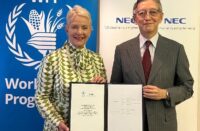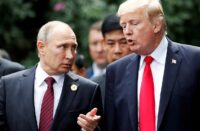By Peter OBIORA InvestAdvocate
Lagos (INVESTADVOCATE) – The International Monetary Fund (IMF) Wednesday projected that the real Gross Domestic Product (GDP) of Mali would hit 4.8 percent (4.8%) in year 2013 following talks with Authorities of the Country.
This is coming on the heels of a French –led Military intervention in that Country to halt Islamic Rebels.
Following this, inflation in Mali is expected to drop below 3% compared to the increase of 5.3% recorded in year 2011 because of poor harvest.
In the same vein, Donors announced the resumption of their development aid following the adoption by the government of a road map to re-establish the administration in the North and organise elections.
“The government is preparing a supplementary budget to allocate that aid. It will be used to finance implementation of the road map and to support the private sector by paying arrears and by resuming capital spending. Thanks to the military intervention by foreign partners, defense spending should stay within the envelope of the initial budget†the IMF said.
According to the IMF, even so, urgent needs remain unaddressed. The government will present these to donors at the Round Table planned for May in Brussels in the hope of covering its remaining financing gap for 2013 and the coming years.
The IMF had supported Mali in January with a disbursement under the RCF of $18 million (CFA 9 billion), and it is keen to continue supporting Mali as it emerges from its crisis, the mission reached agreement ad referendum on quantitative indicators for the rest of 2013 and supportive public finance reforms.
“On this basis, and assuming performance continues to be good through March, the mission will propose a second RCF disbursement of $15 million (CFA 7.5 billion), with Board consideration tentatively scheduled for early June†the IMF added.
In 2012, Mali’s economy had suffered from the political and security crisis. The occupation of the North disrupted agricultural production and trade. The unstable political and precarious security situation in the South dampened investment. Travel to Mali dropped sharply, hitting hard the commerce and tourism sectors.






